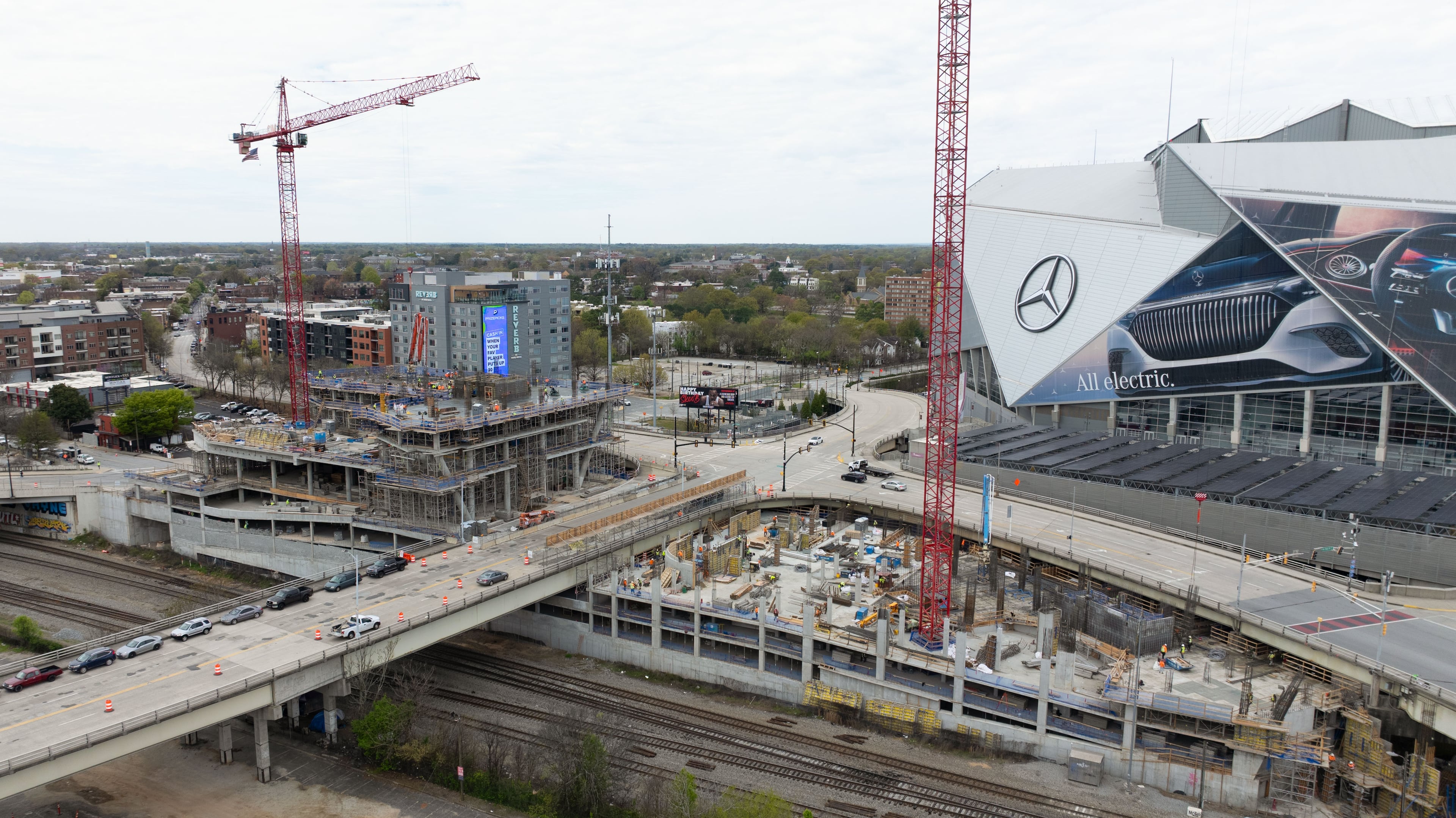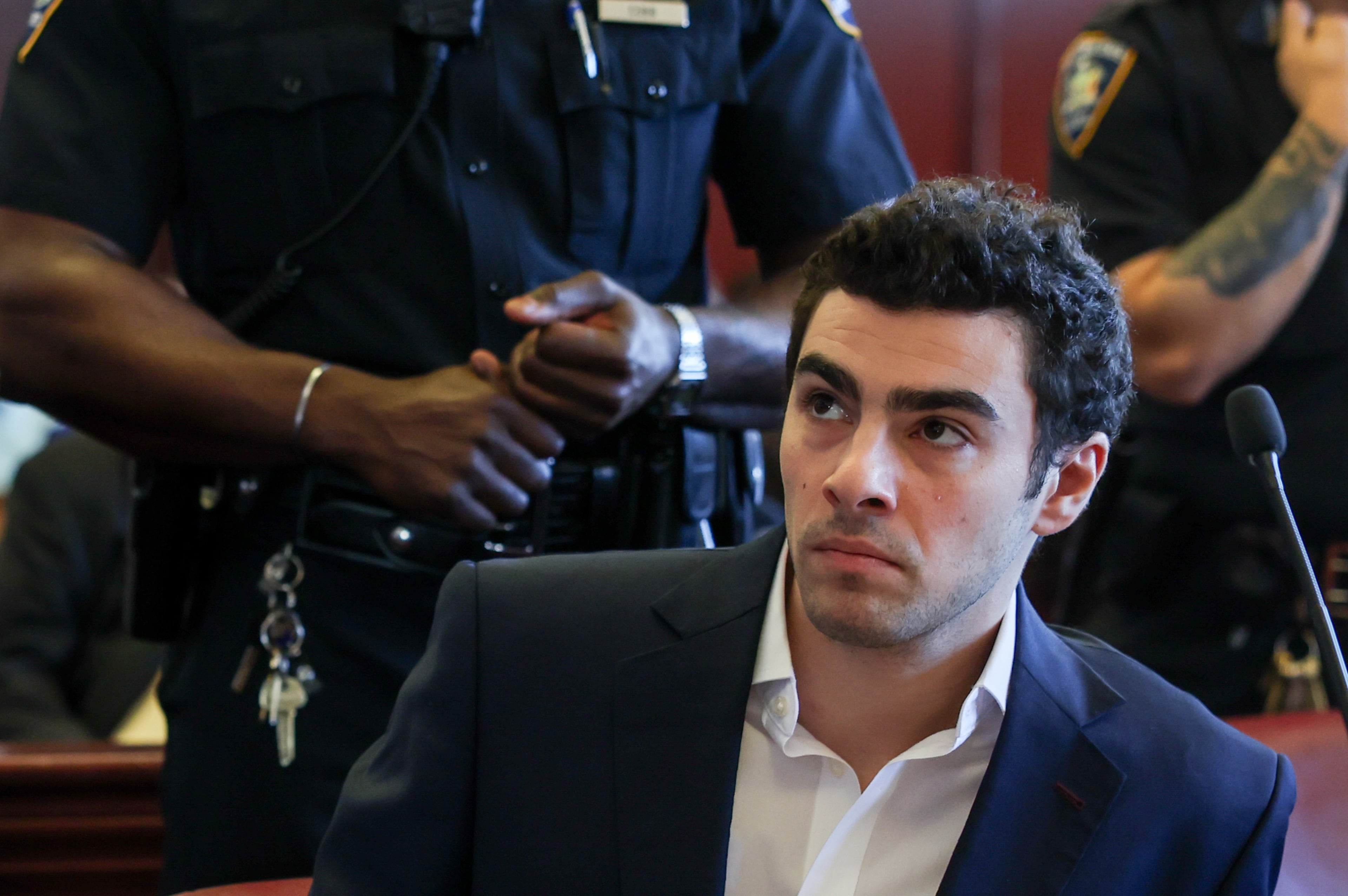Hawks owner says Centennial Yards could reshape downtown Atlanta

Atlanta Hawks lead owner Antony Ressler said Centennial Yards project is the catalyst downtown needs.
The $5 billion effort to transform the swath of parking lots and rail lines known as the Gulch into a thriving “mini-city” is poised to ramp up construction, with an 8-acre entertainment district set to break ground this summer. Ressler confirmed the expansion will include a 5,000-seat arena, along with a 14-story hotel, two retail and restaurant buildings, and a plaza capable of holding large gatherings. By the end of the year, eight buildings in total will be under construction on the long-awaited project, located near Mercedes-Benz Stadium and State Farm Arena.

Ressler, who purchased the Hawks in 2015, is part of the development team alongside California-based CIM Group and NBA Hall of Famer Grant Hill. In an interview with The Atlanta Journal-Constitution, he said he’s optimistic the project will benefit the entire city.
(The interview was edited for length and clarity.)
Q: What does this moment mean for Atlanta?
A: We’ve been working toward this for five or six years. Having this 500,000-square-foot entertainment district is critically important, exciting and will lead to or accelerate all of the housing and residential and experiential retail (at Centennial Yards).
Having a vibrant downtown is what this is all about. It’s not just Centennial Yards. A really successful vibrant entertainment district leads to a really successful Centennial Yards. And a successful Centennial Yards will lead to other successes around downtown.
And yes, you’d be correct if you did criticize and say this should have gone faster. I’m with you. I don’t think COVID helped anything, but let’s face it, it’s moving now, and it’s moving pretty rapidly. The good news is metro Atlanta is also moving, so to me the combination is pretty exciting.

Q: The entertainment district is expected to provide a new place for fans to gather right in the heart of downtown. How vital is that for Atlanta sports and for forthcoming events like the World Cup?
A: I think there’s benefits on so many levels. A plaza where fans can gather of course is of great value, but so is a 5,000-seat arena and so is a whole bunch of restaurants and bars and 4,000 to 5,000 apartments. All of that is bringing life and excitement to downtown.”
Q: With all of this momentum around Centennial Yards, how does this impact the rest of downtown and its major developments?
A: I think it brings more capital, more retailers, more investors and more people wanting to live downtown. The location was always extraordinary. But whether or not downtown is a place that attracts people from all over to live, work and play, that’s the objective.
I bought the Atlanta Hawks nine years ago, and we want people to move downtown, but we also want people to come two hours before games and stay two hours after games. I’m sure the Atlanta Falcons and the United feel the same way. All of this will lead to precisely what I hope we’re looking for, which is much more life and activity in downtown Atlanta. There’s no doubt Centennial Yards with a successful entertainment district is making all of that move more quickly than it would have otherwise.

Q: It’s kind of a virtuous cycle of one feeding the other.
A: No question. This entertainment district will make people wanting to live downtown more excited. That’s a good thing.
You now have a stadium for 75,000 people, a stadium for 17,000 people and a stadium for 5,000 people. You’ll have an aquarium, a convention center, all sorts of bars, restaurants, clubs, activities and yet still have remarkable access to the MARTA station, to the airport and to colleges. The location is extraordinary, and we’re now combining it with all sorts of additional activities and life.
There is no doubt that we have an agenda from the Atlanta Hawks, which is to see downtown Atlanta dramatically improved and connecting with the rest of the city. That has been the objective (of Centennial Yards) from the beginning. These big plans are actually looking quite realistic, and as they say, now it’s just a matter of time.
Q: There’s a lot of talk right now about converting older office buildings downtown into some other type of use — residential is the main focus. Centennial Yards has done that with The Lofts. What would you like to see happen with some of downtown’s offices that might not be competitive anymore.
A: I don’t think downtown Atlanta is different than any other downtown city in America right now where some of their office space may not be functioning well as office space. Let’s face it, you have to come up with other alternatives, whether it’s residential or a different type of office or commercial. If that means some of the office has to be (converted), that’s good business.
So if the question is whether I’m concerned about it, if anything it’s a huge positive. It’s progress, and it’s how to transform a downtown. You’ve got to attract customers and businesses and people who want to live downtown and want to own restaurants, clubs and stores downtown.

Q: One of those larger offices is one of the Hawks’ and Centennial Yards’ closest neighbors, which would be CNN Center. Is there any discussion on what you hope will happen with that property going forward?
A: We share a roof, so yes we have great interest in what the folks that bought CNN Center (are doing). I’ve heard many different things that were possible, but it’s a big building. We don’t own it, so it’s our job to be supportive of whatever they’re trying to build. I’m looking for a successful building that helps downtown.
And it’s not just the CNN Center. There’s several interesting developers with parcels and properties doing all sorts of things outside of Centennial Yards (in downtown). At the end of the day, each development helps the others and helps capital feel comfortable coming to downtown Atlanta. Attracting capital and creative real estate developers and entrepreneurs is how this becomes special.
Q: There’s kind of a kinship among downtown developers and stakeholders of trying to take what is the center of the Southeast and improve it.
A: Right now, I don’t think people across the country look at downtown Atlanta as attractively as we hope they will in the next five years. That’s really where the change is going to come.
Most people would say metro Atlanta is booming. I would hope that within the next five years, people will say metro Atlanta is booming, including downtown.



